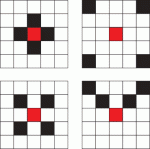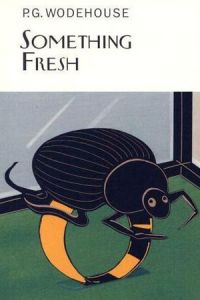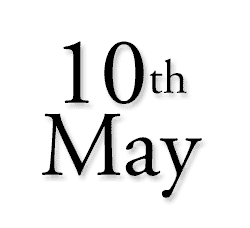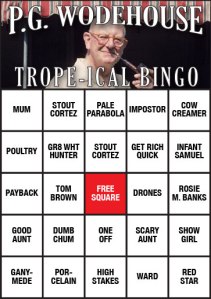 Version 1.0 of the Wodehouse Trope-ical Bingo generator is now online. You can go to the generator by clicking here or by clicking the picture of the bingo card. I hope we can give the cards a dekko when we next meet and perhaps go through some of the tropes for refinement.
Version 1.0 of the Wodehouse Trope-ical Bingo generator is now online. You can go to the generator by clicking here or by clicking the picture of the bingo card. I hope we can give the cards a dekko when we next meet and perhaps go through some of the tropes for refinement.
Right now, there are 54 general tropes and 26 Jeeves and Wooster tropes. There will be additional categories for the Blandings, Mulliner and golf stories and maybe an American category. Click here to see the master list of tropes.
The provisional rules of the game can be found here. It will still take some fine tuning to ensure that someone will always win. I think the success of the game will depend on skillfully pruning the list of tropes.
General vs specific
It’s fun to wrack one’s brain looking for obscure tropes. Someone suggested “irreproachable Mechlin lace,” which I liked, but other than Right Ho, Jeeves and The Code of the Woosters, I can’t think where else it occurs. Of course, I haven’t read every last bit of Wodehouse so it may occur many times, but maybe not enough times to qualify as a trope.
On the other hand, I had worried about a trope being too common, like the Empress of Blandings for the Blandings stories. Now I realize that for game play, you really do want tropes that appear in almost every story.
How not to win
 In regular bingo, someone always eventually wins. Usually each player gets three cards and those cards are marked with all the numbers 1 through 75. The ball cage has balls marked with the numbers 1 through 75 and if all the balls are drawn, everyone could theoretically win at the same time as the last ball is drawn.
In regular bingo, someone always eventually wins. Usually each player gets three cards and those cards are marked with all the numbers 1 through 75. The ball cage has balls marked with the numbers 1 through 75 and if all the balls are drawn, everyone could theoretically win at the same time as the last ball is drawn.
But it’s possible that even with each player getting three cards, that no one will be able to match enough tropes sufficient to win, if we limit ourselves to five tropes in a row, column or diagonally. It might be necessary to allow additional combinations to better the chances of someone winning.
I suppose it could be possible to pare the tropes down to 25 (actually 24 because of the free square) that appear in every story, although that would be quite an accomplishment (easier within a category). That way every card is eventually a winner, but would it be as much fun. Surely some of the appeal is to pick some obscure tropes that have people scratching their heads.
I could also give the program easy and difficult settings. In the easy setting, it only generates from the 24 tropes found in every story. In the difficult setting, it draws from a much larger set of tropes.
Printing
By default, the program will present a card with an accompanying list of the tropes and their definitions. By clicking Hide Descriptions (2-up), you can print two cards on a sheet, but with no list. You’ll need to print the master list of tropes separately (they can be listed alphabetically or randomly). Cards are best printed in landscape mode.
Fine tuning
Right now, if choosing a category, the generator picks twelve general and twelve category specific cards. It does not intermingle the tropes; they are separated by the free space. I will next modify the program to either intermingle them or to use only the category specific tropes when a category is selected.
I’d appreciate any comments below. Perhaps we can play a couple of rounds of Wodehouse bingo at our next movie night and really put it through its paces.



